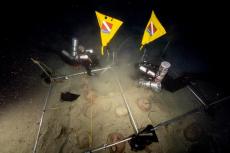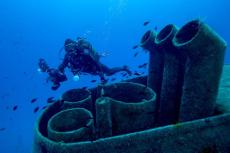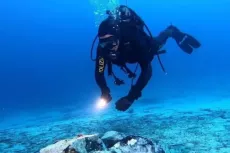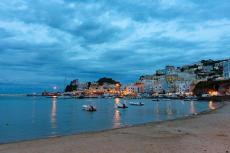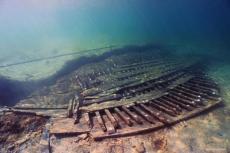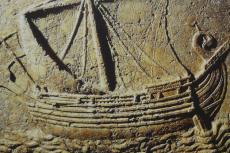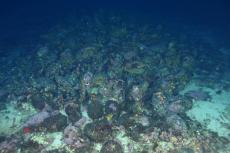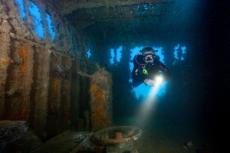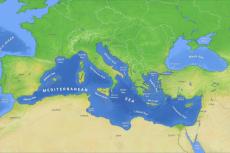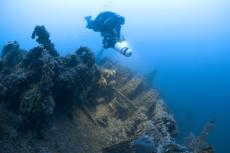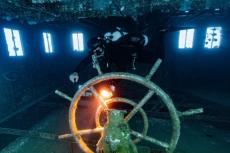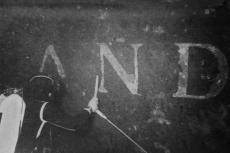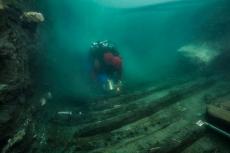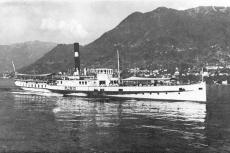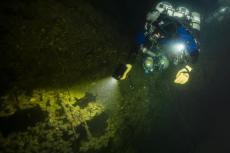Ancient Roman shipwreck reveals a trove of preserved glassware
Archaeologists have recovered exquisitely preserved Roman glassware from a 2,000-year-old shipwreck near the coast of Rome, shedding light on ancient maritime trade routes.
Underwater archaeologists recently discovered the remains of an ancient Roman cargo ship off Rome's coast. This significant find goes beyond merely finding another shipwreck; it offers an intriguing glimpse into the complexities of ancient Roman seafaring, trade practices and the far-reaching influence of Rome's maritime network.
The Capo Corso 2 wreck was discovered in 2012 at a depth of around 350 metres between Sicily's Capo Corso and the island of Capraia which lies off Tuscany, Italy.
Ancient Glassware
Underneath centuries of silt and sea life, the archaeologists uncovered a collection of beautifully preserved Roman glassware. These artefacts, dating back 2,000 years, have been encased and safeguarded by the sea bed, enabling their delicate structures and intricate designs to endure throughout the ages. Their exceptional state of preservation suggests that the ship sank quickly, leaving the cargo undisturbed until now.
An Insight into Maritime Trade
The ship's vast and diverse cargo points to the extensive trade relations the ancient Romans maintained throughout the Mediterranean. The fact that such delicate items could be transported vast distances by sea underscores the skill and sophistication of Roman mariners, and their sturdy vessels.
As such, the discovery provides crucial insights into Rome's intricate maritime trade network, giving us a better understanding of the economy and trade practices of that era.
Skilled glassmakers
The discovery of this ship and its cargo enhances our understanding of ancient Roman life, commerce and artistry. In particular, it sheds light on the skills of Roman glassmakers, and the types of goods that were deemed valuable enough to transport across the risky waters of the Mediterranean.



